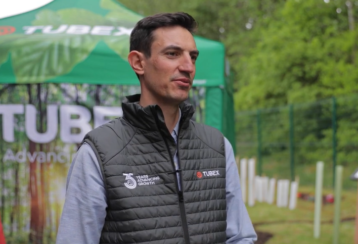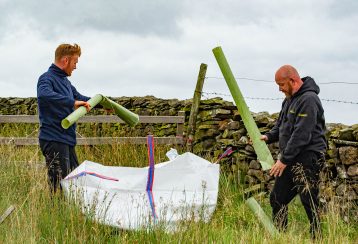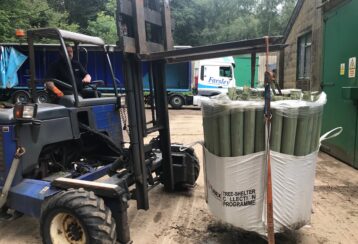Volunteers led by National Highways and supported by Tubex’s collection programme have removed a large number of legacy tree shelters from the A428 near Cambridge.
The event, which took place in October, was supported by Tubex as part of its tree shelter Collection & Recycling Programme. More than 25 volunteers – comprising staff from National Highways East and partner organisations – collected around 2,000 used shelters from a section of the A428 near Hardwick, Cambridgeshire over the course of an afternoon.
Rob Barron, Supplier Relationship Manager at National Highways East explained the impetus behind the event: “We received a number of complaints from the public about the length of time some of the tree shelters had been left in place, so we decided to hold a volunteering day to start the process of removing the shelters.
“We’re really pleased with how the day went and our thanks goes to all the staff who gave up their time to help out – and also to Tubex, which has the perfect infrastructure in place to recycle shelters once they reach their end-of-life.”
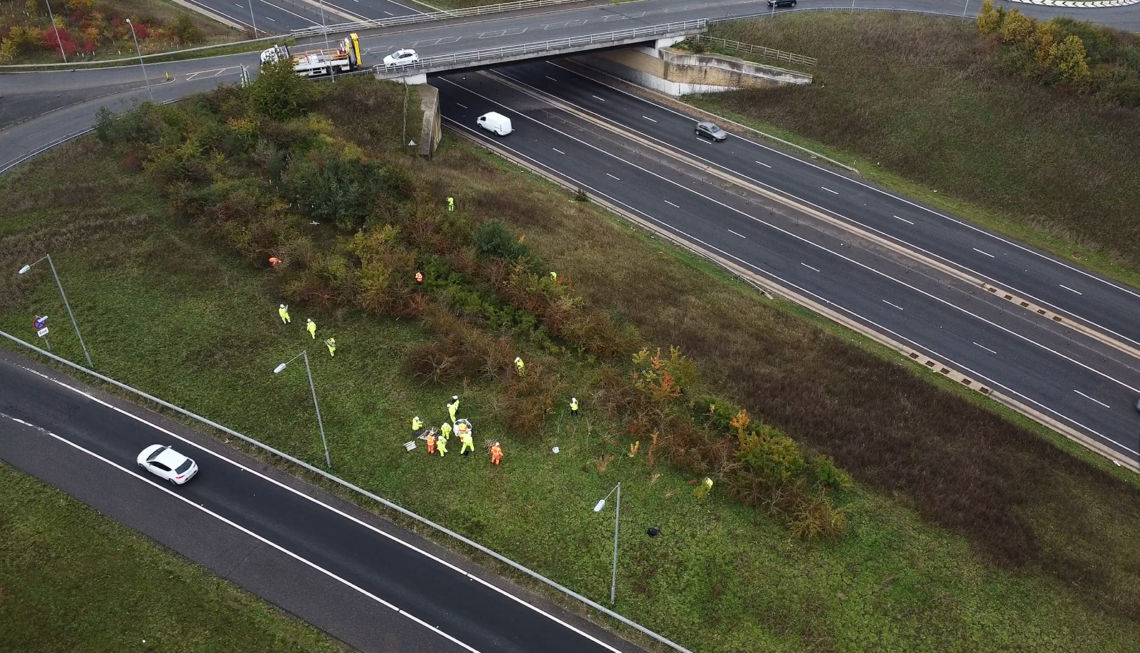
The removed shelters were collected by Tubex and taken to its dedicated recycling facility in Heanor, Derbyshire. Once processed, the recycled polypropylene (PP) will be used in the manufacture of new Tubex Recyclable tree shelters which contain an average of 35% recycled material.
The volunteer day was considered a success and plans are underway to hold similar events – involving both internal and external partners – to remove more legacy shelters from both the A428 and other highways across the East region.
National Highways’ approach to tree planting and shelter use are guided by the organisation’s dedicated environmental team, as Rob Barron explained: “Our environmental approach is very much about minimising impact on both residents and the local environment. That means replacing what is lost during construction and keeping the appearance of the network in-line with the local environment as much as possible.
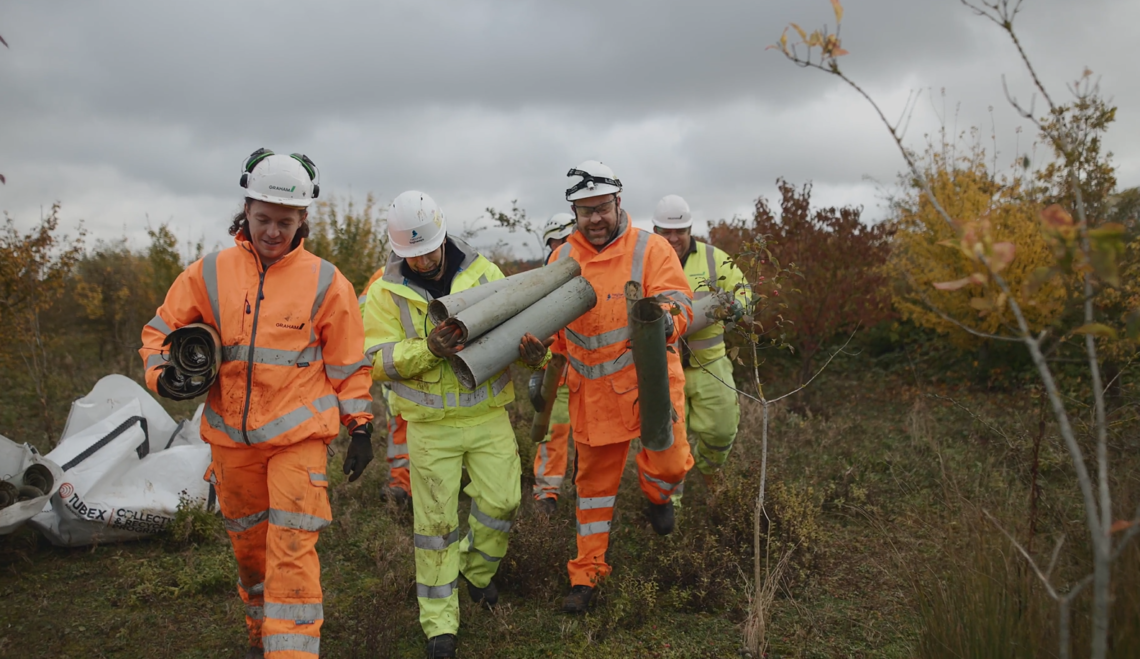
“Whilst tree shelters are essential to protecting saplings from animal browsing, it’s also vital that we remove them at end-of-life to ensure a circularity of material use and to remove plastics from the environment.”
Attending the event was Louise Allen, Key Account Manager at Tubex who said: “Establishing an infrastructure to ensure that tree shelters can be easily recycled is a key priority for Tubex.
“Recyclable tree shelters remain the lowest impact shelter solution but only if they are collected and recycled at end-of-life. Therefore, it’s vital that we make the recycling process as accessible as possible – and is why we thoroughly enjoy supporting collection events such as this.”
Launched in 2021, Tubex’s Collection & Recycling Programme was expanded this year to include 17 collection hubs located across the UK, where used tree shelters can be dropped off free-of-charge on an appointment basis.
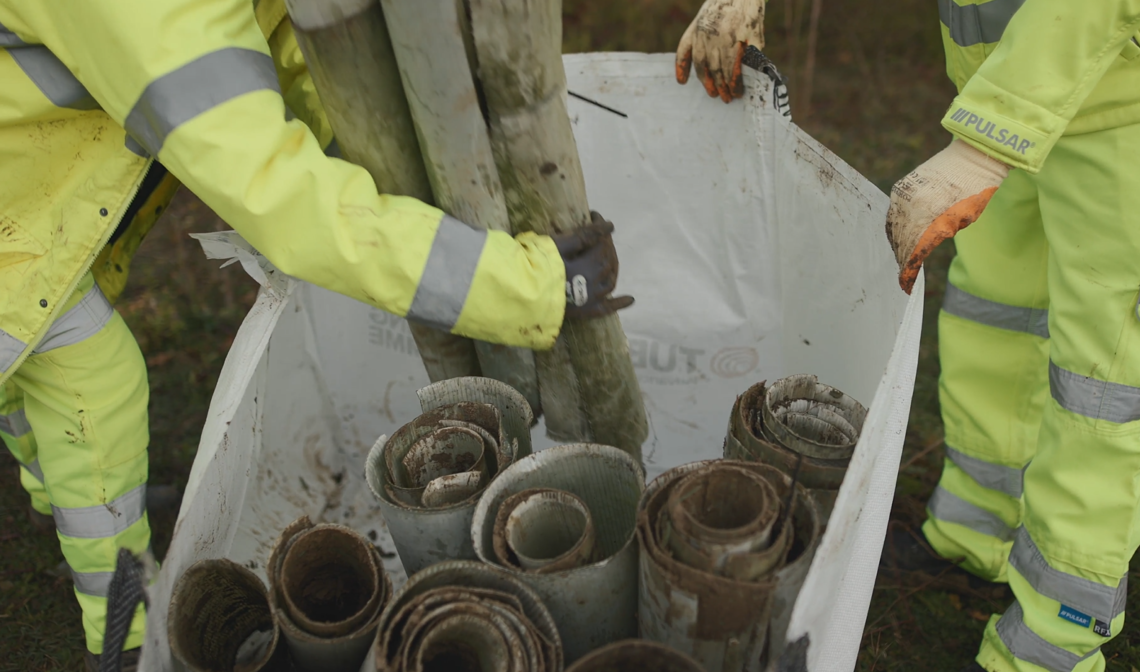
Over the past year alone, approximately 350,000 tree shelters were collected and recycled via these hubs, resulting in over 40 tonnes of recycled material that will be used in the manufacture of brand-new shelters.
“Roadside or civil engineering locations are some of the more accessible environments for collecting used shelters and we hope to see organisations follow National Highways’ lead on tackling legacy tree shelters”, concluded Louise.
For more information on Tubex’s recycling efforts click here: https://tubex.com/sustainability/tree-shelter-collection-recycling-programme/
For more information on National Highways East and the work they do, click here: https://nationalhighways.co.uk/our-roads/east/

